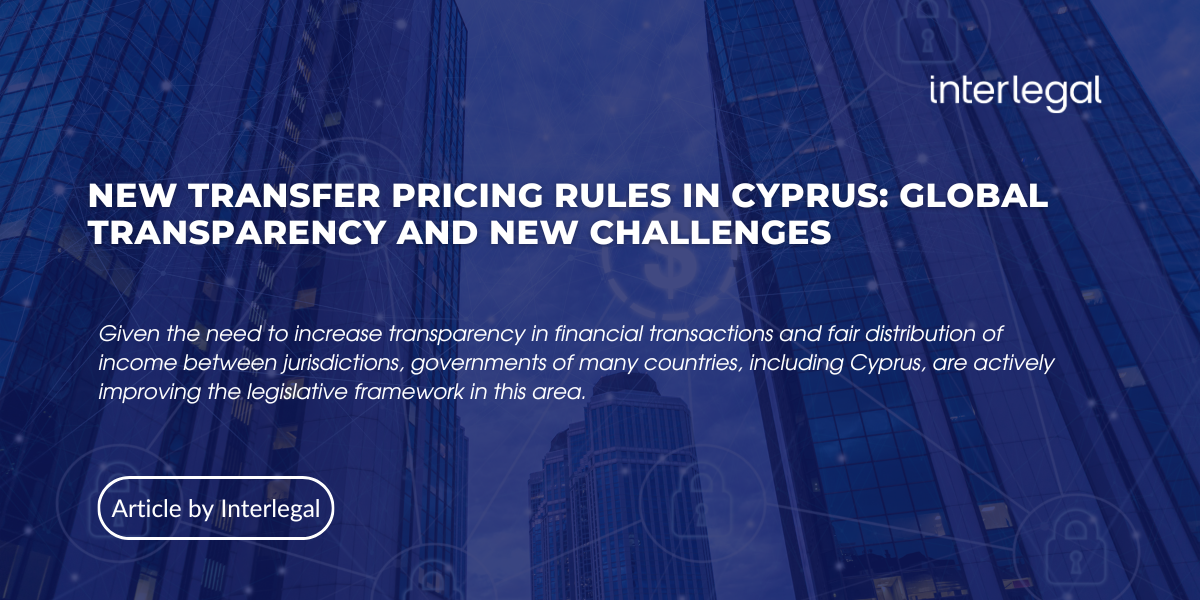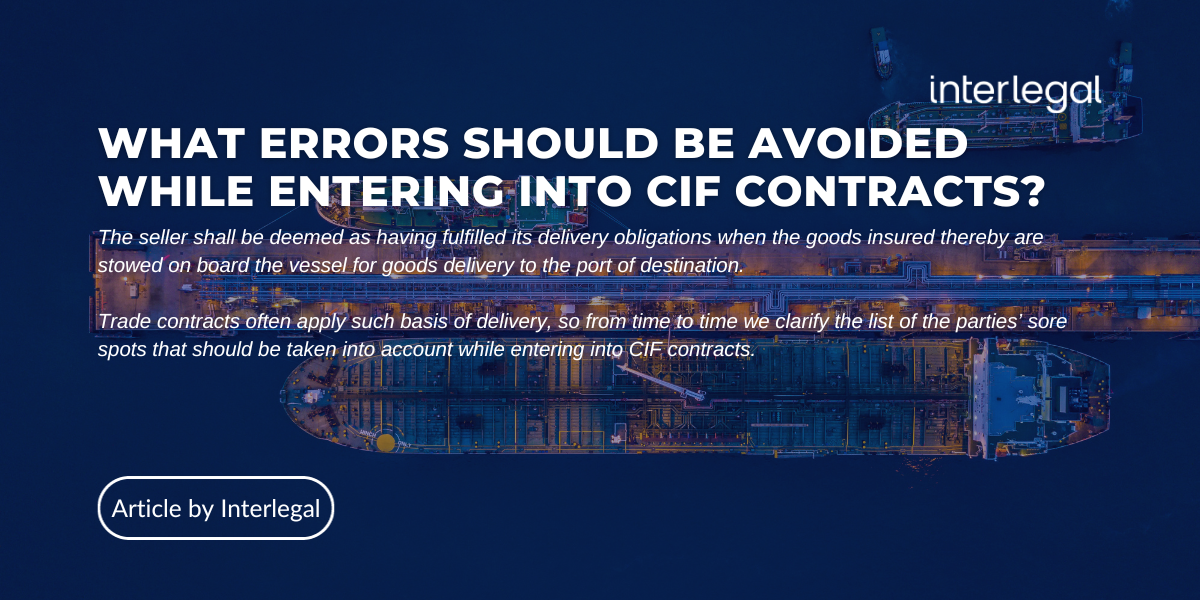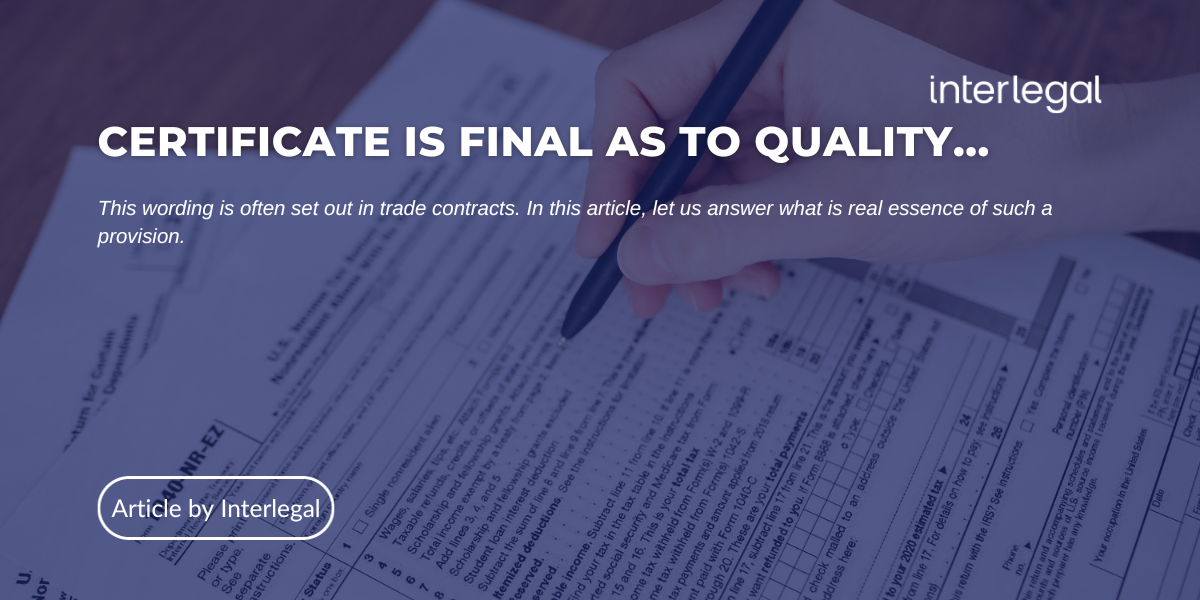Everything you say may be used against you, or what does the term «Without prejudice» mean
25 February, 2015
2
A legal term “without prejudice” is often used in business correspondence. “Without prejudice” means that everything stated in letter marked as “without prejudice” will not be taken into account in the process of settlement of the dispute. At first sight such wording seems to be quite secure but it may have negative consequences for anyone who does not fully understand its meaning. A more experienced market player may set up claims grounded on the correspondence even if it is marked as “without prejudice”.
Legal regime of correspondence marked as “without prejudice”
The term “without prejudice” has been used for a long time (for the first time in the 13th – 14th centuries) as one of the forms of documental privilege. Oxford Dictionary interprets it as “without detriment to any existing right or claim”. In Walker v Wilsher [1889] 23 QBD 335 the meaning of the term “without prejudice” was determined as “without detriment to the Party proposing a solution if terms of its proposal are not accepted”.
In case any disagreements between business partners arise, in order to preserve mutually beneficial commercial relationship, the most effective solution is to find compromise between the parties on the out-of-court basis. English Law stipulates the main idea of the term “without prejudice” as avoidance of using any proposals of the Parties as evidence in the process of settlement of the dispute on the out-of court basis. In order to obtain such defense, while sending a letter with proposal, the party marks it as “without prejudice”. Such correspondence allows the party to make a proposal without its public disclosure before the court/arbitral tribunal without its consent.
In fact such correspondence is very similar to any other correspondence between the same counteragents, but it does not have any legal effect. If the parties cannot reach a compromise, the counteragents may reckon that such correspondence can not be recognized by the court/arbitration as evidence, and, thus, it can not be used against the party at the court.
The term “without prejudice” can be used in any correspondence. It is usually stated in the beginning of the letter before stating any facts or used in a particular sentence as “on without prejudice basis”. There are also up-to-date wordings such as “without prejudice save as to costs”. Peculiarities of their use have particular nuances stated below.
Ukrainian law
The Ukrainian law does not provide direct analogy to the term “without prejudice” used in the English law. According to Article 57 of the Civil Procedural Code of Ukraine, evidence shall include any actual data on the basis of which the court states presence or absence of facts which prove claims and objections of the parties as well as other circumstances being essential for case consideration. Such data shall be grounded on explanations of the parties, third persons, their representatives interrogated as witnesses, witness testimony, written evidence, material evidence, in particular audio/video records, conclusions of experts.
According to Article 64 of the Civil Procedural Code of Ukraine, written evidence shall include any documents, acts, certificates, business or private correspondence or their extracts containing data about circumstances being essential for case consideration. According to Article 58 of the Civil Procedural Code of Ukraine, evidence shall be proper if it contains information about the subject of proof. The Parties are entitled to justify suitability of certain evidence in order to confirm their claims or objections. The court shall not consider evidence not related to the subject of proof. Therefore according to the Ukrainian law all the evidence submitted to the court shall be inspected for compliance with admissibility and relevance. A man\’s enemy is his tongue – that is the principle applied by the Ukrainian court/arbitration in respect of body of evidence. Thus, if the contract is governed by the Ukrainian law, it is unlikely that the clause “without prejudice” stated in correspondence would serve as defense of the party against using the corresponding information by the counteragent in court. The Ukrainian law assesses evidence from another point of view; therefore different mechanisms of defense shall be applied.
The English law
The Parties often carry on business correspondence on “without prejudice” basis due to general principles of such regime, namely:
– Prohibition of public disclosure even in case of amicable settlement of the dispute;
– Impossibility of inclusion of it into the body of evidence;
– Absence of the impact on further negotiations or court/arbitration proceedings.
On the grounds of such principles, it seems that it is enough to state “without prejudice” in the beginning of the letter and it will secure automatically all the negotiations and may level neutralize all the possibly reached arrangements between the parties in the course of negotiations in case no amicable agreement is reached.
However such a conclusion is wrong. Such term is often used not for its designated purpose and in fact it impedes commercial negotiations.
For example, in Cutts v Head [1984] Ch 290 the judge Oliver LJ held that the parties who carry on correspondence marked as “without prejudice” must ensure that such correspondence will not be disclosed in public or will not serve as evidence in case of further court/arbitral proceedings.
But up-to-date practice of English courts is more ambiguous in respect of correspondence marked as “without prejudice”. Unilever plc v The Procter & Gamble Co [2000] 1 WLR 2436 contains different approach: the Judge Robert Walker summarized exceptions from the privilege “without prejudice”. Therefore, the court shall treat the correspondence marked as “without prejudice” as proper evidence in the following cases:
- When such correspondence has resulted in a concluded compromise agreement;
- When such amicable agreement should be set aside on the ground of misrepresentation, fraud or undue influence;
- If no agreement is concluded, such correspondence can be used if contains a clear statement which is made by one party to negotiations, and on which the other party is intended to act and does in fact act;
- When non-disclosure of such correspondence hides perjury, blackmail or other “unambiguous impropriety”;
- In order to justify delays in any procedural terms;
- In order to determine, whether the Claimant performed reasonable actions for the purpose of mitigating losses in the course of negotiations and conclusion of the agreement;
- If marked as “without prejudice save as to costs”;
Some more exceptions were stated in the recent precedents:
- Such correspondence shall be disclosed under the principle of “full and frank disclosure”;
- In case of using any facts stated on “without prejudice” basis, but only those, which are familiar to both parties;
- In case of interpreting any provisions of the settlement agreement, which was reached on “without prejudice” basis.
An extraordinary approach was expressed in Oceanbulk Shipping & Trading SA v TMT Asia Ltd. [2010]. The tenth exception was formulated just in this decision. The companies Oceanbulk Shipping (the Claimant) and TMT Asia Ltd (the Defendant) made several forwarding contracts for a certain term. In the middle of this term the Defendant owed nearly 40 million USD to the Claimant for rendered services. The parties made a correspondence on “without prejudice” basis in order to determine the mechanism of debt recovery. As the result, the parties reached amicable agreement. The dispute arose in respect of interpretation of some contract provisions due to its violation.
The Defendant argued against interpretation of provisions by the Claimant, with reference to the Claimant’s explanations in respect of amicable agreement marked as “without prejudice”. The Claimant stated that such explanations were marked as “without prejudice”, therefore, according to privileges and principles of such correspondence, they shall be neither used for settlement of dispute nor submitted to the court as evidence. The Defendant stated that despite reaching the agreement in the regime of “without prejudice” it shall be deemed as exception from such regime; therefore the court shall recognize and use it as evidence.
As the result, the Judge Andrew Smith did not satisfy the claim and made a decision that arrangements in respect of terms of the amicable agreement were treated in fact as exceptions from the rule “without prejudice”. The appeal court stated that such decision shall remain in force. Therefore the tenth exception from the rules of correspondence “without prejudice” appeared.
The term “without prejudice” shall not be treated as a remedy from all the possible claims based on the correspondence between the parties. For the purpose of security and correctness business correspondence, you shall take into account the fact that the dispute has already arisen and then, be more attentive in the process of carrying on the correspondence and finding the ways of settlement of the dispute.
Published in APK-Inform.
























































